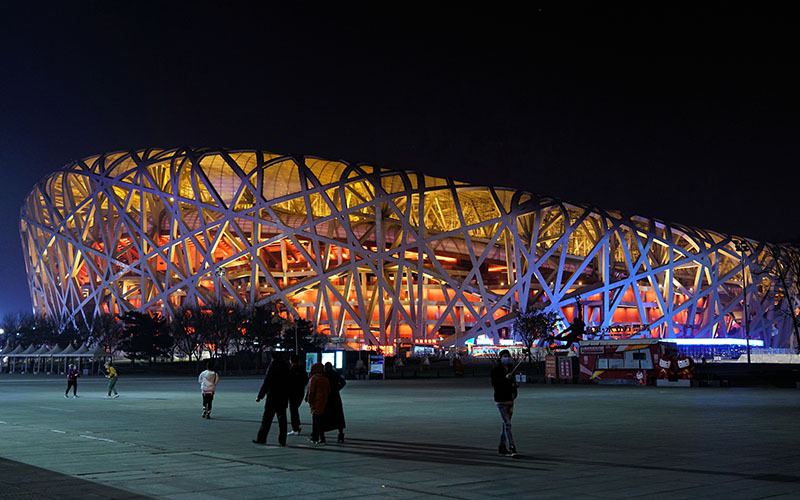The National Stadium was the host stadium for the 2008 Summer Olympics in Beijing and will be used again as the host stadium for the 2022 Winter Olympics. Photo credit: Slices of Light/ Flickr
Canada is expected to send 85 athletes to Beijing to participate in the winter Olympic Games in February – 44 men and 41 women.
But the location of the games is a subject of controversy.
Earlier this week, the Bloc Quebecois MP Alexis Brunelle-Duceppe introduced a motion in the House of Commons calling on the International Olympic Committee to postpone the games for one year, so that an international observation mission could visit Xinjiang, where crimes against humanity targeted against Uyghurs are alleged to be occurring.
“The Chinese government… is violating every provision of the United Nations Genocide Convention,” Brunelle-Duceppe said.
He also called for China to be withdrawn from the Olympics if it refused to host the mission. Brunelle-Duceppe’s motion was blocked.
On Tuesday, Pascale St-Onge, the federal minister of sport, said Canada has not yet decided whether or not to boycott the games.
“The decision has not been yet made, we are still in discussion,” St-Onge told reporters outside the House of Commons. “In regards to the government, we obviously respect the independence of the Canadian Olympic and Paralympic committees with respect to Team Canada’s participation in the Olympic Games. At the moment, our priority is the safety and security of all athletes.”
Margaret McCuaig-Johnston, a senior fellow at the Institute for Science, Society and Policy at the University of Ottawa, said Canada’s decision will have to balance the interests of athletes and human rights.
“The Olympics are a big celebration of sports, but also international togetherness. And especially the opening and closing ceremonies are big celebrations of the host country. They get to put on a big extravaganza of the best entertainment their country has to offer,” she said.
“We don’t want our athletes to have to lose the opportunity of their career, something they’ve worked [on] for many years. If they didn’t attend at all, they would then have to work another four years — it’s a lot to ask them to give up.”
McCuaig-Johnston said Canadian athletes will have to consider how their participation in opening and closing ceremonies will be seen when they return home. “They will have to answer questions about why they went to big celebrations in China, when millions of people are being tortured and victimized.”

